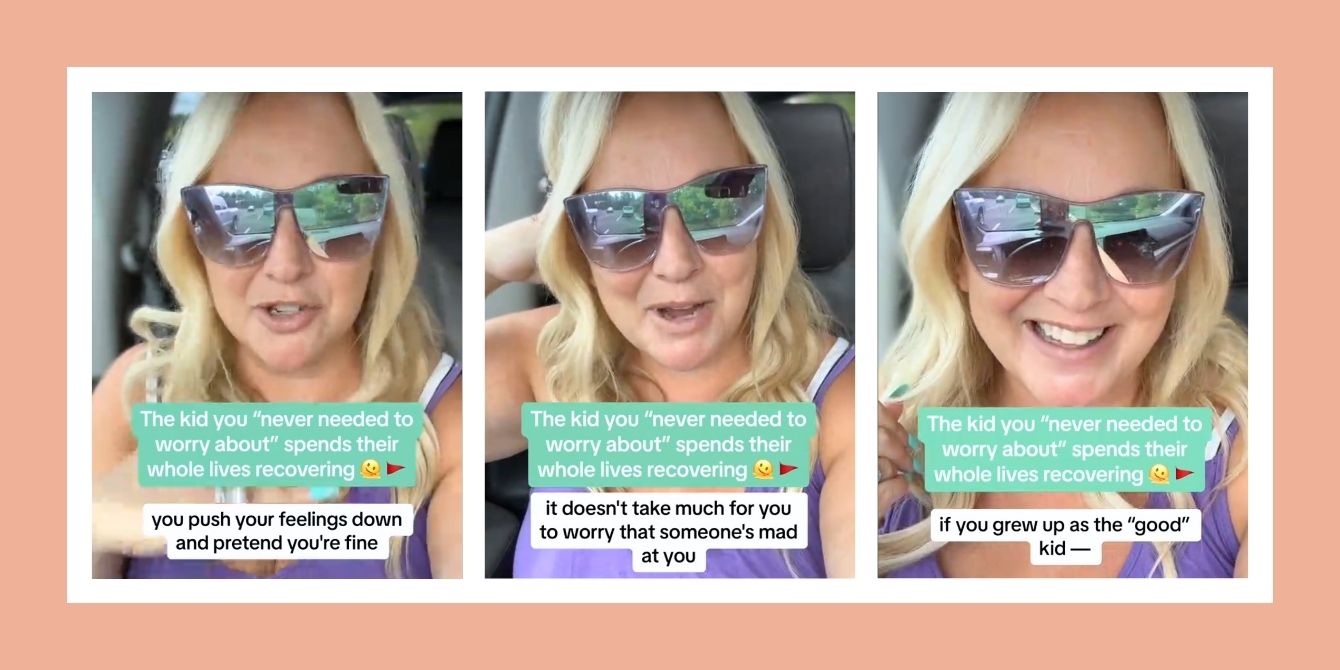If you ever had a teacher refer to you as “a pleasure to have in class” while you were growing up, this article is for you. Licensed social worker, trauma therapist, and mom Maggie Nick, who posts to TikTok as @maggiewithperspectacles, has a video going viral where she speaks to all the former “good kids” who have now grown up—and it’s incredibly soothing and healing. It’s probably because Nick really gets it—she refers to herself as a “recovering burned out, overachieving, people pleasing, perfectionist, pushover, shape-shifting chameleon.”
She starts her video by describing the former kids she’s reaching out to.
“You anxiously watch everybody’s moods like a hawk, looking for any evidence you’re in trouble or you’ve done something wrong,” she says. “You’re a pushover and trying to set boundaries puts your body in the fight or flight. It doesn’t take much for you to worry that someone’s mad at you.”
She continues, “You people please, and you’re terrified of making anyone mad and disappointing or letting anyone down. You’re the happy one. You make everyone feel so good about themselves, but inside… you beat yourself up about everything. You apologize like this: ‘Oh my God, I’m so sorry. I’m so sorry. I feel so bad. Are we OK? Are you OK? Oh my gosh, I’m so sorry. I feel so bad.’”
If that sounds like you, you’re going to want to keep watching. Oh, and maybe grab a tissue or two, because the message Nick has for you is probably going to hit right in the feels.
These days, she notes, “You avoid conflict and boundaries at ALL cost, because what if that person leaves you? You bottle all of your feelings. You push your feelings down and pretend you’re fine, put on this brave mask.”
She adds, “You’re the helper. You’re the one who gives the support; you don’t ever ask for support, and you struggle to receive support even when you’re really struggling.”
But that’s not sustainable. Everyone needs help sometimes. So Nick has this message for anyone who relates to that.
“You don’t have to earn love by being good and being fine all the time and accomplishing,” she says. “You’re also not a burden. It is a privilege and an honor to take care of you when you’re struggling. You are not hard to love, you’re not. You’re easy to love. It’s a delight and a privilege to get to love you. It’s OK to not be OK. You don’t have to hold it together all the time and pretend you’re fine. There’s nothing wrong with you for struggling and not being perfect and not being fine all the time. There is nothing wrong with you.”
OK, so who’s cutting onions in here?

